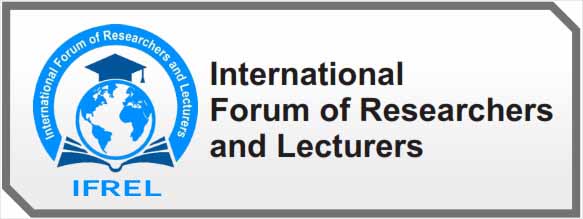Utilization of Senjoyo Springs in the Development of Tegalwanto Village in Tenggaran District, Semarang Regency
DOI:
https://doi.org/10.55606/bijmt.v4i1.2830Kata Kunci:
Tourism management, Village development, natural tourism, Semarang tourismAbstrak
The development strategy derived from the SWOT analysis of Senjoyo Springs highlights the utilization of its internal strengths, especially the potential of natural conditions, to improve the quality and attractiveness of tourist attractions. Exploiting open markets and product diversification is an effective strategy for optimizing external opportunities. To overcome internal weaknesses, such as limited capital, as well as anticipate external threats, such as weather changes, actions are needed to strengthen the position of Senjoyo Springs in the natural tourism market. The contribution of Senjoyo Springs Nature Tourism to local community income is around 30.97%, showing a positive impact on the local economy, in line with previous findings regarding the economic benefits of nature tourism. Development recommendations include more intensive environmental management efforts, aggressive promotion, and close collaboration between the government, tourism managers and the community. Focusing on human resource management and increasing community knowledge regarding sustainable practices through training and education is critical. In the long term, regular monitoring of strategy implementation and its impact is essential to maintain the sustainability of Senjoyo Springs as a tourist attraction that provides sustainable economic, social and environmental benefits.
Referensi
Andrew.S, Poluan, J. V. R. (2017). Pengembangan Kawasan Agrowisata di Kecamatan Tomohon Timur. Spasial, 4(1), 125–135.
Aryaningtyas, A. T., & Palupiningtyas, D. (2017). Pengaruh pendidikan kewirausahaan dan dukungan akademik terhadap niat kewirausahaan mahasiswa (Studi pada mahasiswa STIEPARI Semarang). Jurnal Ilmiah Manajemen Dan Bisnis, 18(2), 140–152.
Gurindawangsa, S. A., Topowijono, T., & Supriono, S. (2017). Analisis Strategi Pengembangan Produk Agrowisata (Studi pada Desa Wisata Gubugklakah Kecamatan Poncokusumo Kabupaten Malang Jawa Timur). Jurnal Administrasi Bisnis S1 Universitas Brawijaya, 51(2).
Kaseje, D. C. O., Sempebwa, E. K. N., & Spencer, H. C. (1987). Community leadership and participation in the Saradidi, Kenya, rural health development programme. Annals of Tropical Medicine & Parasitology, 81(sup1), 46–55.
Kummitha, H., Huseynov, R., & Wojtaszek, M. (2018). Development of Agritourism in the Light of Economics: Case Studies of Italy and Poland. Zeszyty Naukowe SGGW w Warszawie - Problemy Rolnictwa Światowego, 18(1), 143–148. https://doi.org/10.22630/prs.2018.18.1.13
Lestariningssih, U., Setiadi, A., & Setiyawan, H. (2018). Analisis Pengaruh Agrowisata Terhadap Peningkatan Pendapatan Petani Bunga Krisan Di Kecamatan Bandungan Kabupaten Semarang. AGRISAINTIFIKA: Jurnal Ilmu-Ilmu Pertanian, 2(1), 51. https://doi.org/10.32585/ags.v2i1.218
Maria, A. D., Yulianto, H., Palupiningtyas, D., & Usodo, H. (2022). Relationship between transformational leadership, proactive personality, creative self-efficacy and employee creativity at food processing SMEs in Indonesia. Evidence-Based HRM: A Global Forum for Empirical Scholarship, 10(3), 257–274.
Mead, G. H., Brewster, J. M., Dunham, A. M., Miller, D. L., & Morris, C. W. (1967). The Philosophy of the Act. Edited, with Introd. By Charles W. Morris in Collaboration with John M. Brewster, Albert M. Dunham [and] David L. Miller.
Nasib, S. P., Sungguh Ponten Pranata, S. P., Arsyaf Tampubolon, S. E., Emma Novirsari, S. S., SP, M., Ratih Amelia, S. E. I., Pasaribu, D. S. O., SE, M. A., Theodora, E. M., & Hou, I. A. (n.d.). Bisnis Dasar Dan Etika Dalam Berbisnis.
Novirsari, E., & Ponten Pranata, S. (2021). The Role of Brand Trust in Mediating Brand Image Towards Loyalty of Visitors in Lake Toba. Journal of Sosial Science, 2(5), 610–615. https://doi.org/10.46799/jss.v2i5.208
Palupiningtyas, D., & Aryaningtyas, A. T. (2022). Pengaruh Kompensasi dan Lingkungan Kerja terhadap Kinerja Karyawan di Restoran S2 Semarang. Jurnal Visi Manajemen, 8(2), 109–117.
Palupiningtyas, D., & Mistriani, N. (2020). Penerapan Kewirausahaan Berbasis Pariwisata Bagi Masyarakat. JCES (Journal of Character Education Society), 3(2), 311–319.
Palupiningtyas, D., Mistriani, N., & Wijoyo, T. A. (2020). Analisis Lingkungan Internal dan Eksternal Pariwisata dalam Meningkatkan Ekonomi Masyarakat Lokal di Kabupaten Demak Jawa Tengah. Jurnal Manajemen STIE Muhammadiyah Palopo, 6(1), 43–49.
Palupiningtyas, D., & Pahrijal, R. (2023). Bibliometric Analysis of Social and Environmental Innovation Research Developments: Trend Identification, Key Concepts, and Collaboration in the Scientific Literature. West Science Business and Management, 1(04), 245–254.
Palupiningtyas, D., & Yulianto, H. (2021). Peningkatan kemampuan penerapan chse bagi pengelola homestay. JMM (Jurnal Masyarakat Mandiri), 5(2), 539–547.
Pranata, S. (2023). Product Originality and Buying Culture on Purchase Decisions Through Brand Advocacy on JD. ID E-Commerce. Cebong Journal, 2(3), 121–125.
Pranata, S. P. (2022). The Influence of Lecturer Competence, Lecturer Creativity, and Utilization of E-Learning Media (E-MTU) on Student Understanding at Universitas Mahkota Tricom Unggul During the Covid-19 Pandemic. Enrichment: Journal of Management, 12(2), 2285–2292.
Prayudhi, L. A., & Sativa, R. D. O. (2021). Dampak Covid Terhadap Pendapatan Petani Belimbing di Agrowisata. AGRIKAN Jurnal Agribisnis Perikanan, 14(2), 316–320.
Sadowski, A., & Wojcieszak, M. M. (2019). Geographic differentiation of agritourism activities in Poland vs. Cultural and natural attractiveness of destinations at district level. PLoS ONE, 14(9), 1–22. https://doi.org/10.1371/journal.pone.0222576
Schilling, B., Sullivan, K., & Komar, S. (2012). Examining the Economic Benefits of Agritourism: The Case of New Jersey. Journal of Agriculture, Food Systems, and Community Development, 3(1), 199–214. https://doi.org/10.5304/jafscd.2012.031.011















